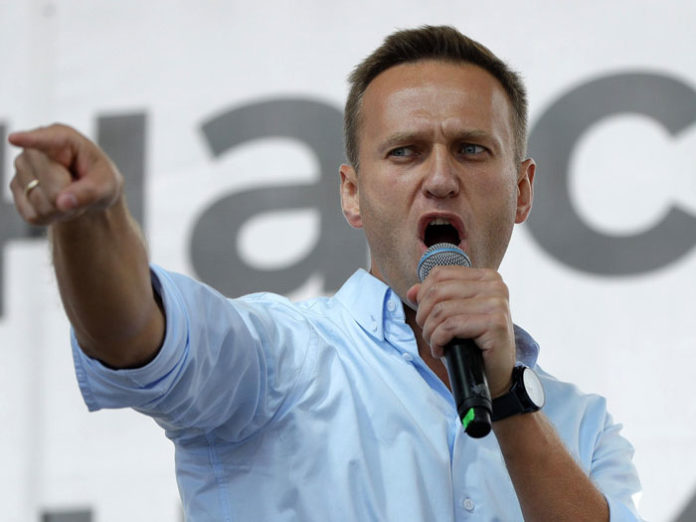If there were a prize for the most audacious and successful prank of the year—maybe even of all time—Russian opposition leader Aleksei A. Navalny’s phone call should get it.
The vocal critic and political opponent of Russian President Vladimir Putin was famously poisoned last summer with a highly toxic nerve agent, a member of the Novichok family of chemicals concocted by Russian scientists and favored as a murder weapon by the country’s intelligence personnel. Mr. Navalny nearly died.
That he didn’t is due only to the decisive action of a pilot who, hearing Mr. Navalny’s screams of pain on a flight from the Siberian city of Tomsk to Moscow, made an emergency landing in nearby Omsk, where a waiting ambulance rushed the ailing Russian to a hospital. He was later transferred to Berlin, where he recovered after several weeks, and where, for now, he remains.
Mr. Navalny made his plucky prank call shortly after a recent report by CNN and the investigative journalism group Bellingcat was released. The report, which examined thousands of phone records and flight manifests, pieced together how an elite unit of the FSB, the Russian successor to the Soviet KGB, had followed Navalny on more than 30 trips to and from Moscow, including the one to Tomsk where the dissident was poisoned.
Disguising his phone number to make it seem that he was calling from a Russian intelligence agency, Mr. Navalny called Konstantin Kudryavtsev, one of the FSB operatives involved in his attempted murder, and identified himself as “Maxim Ustinov,” an aide to the head of Russia’s national security agency. With an air of authority, he demanded to hear the details of what had gone wrong with the Tomsk operation.
Mr. Kudryavtsev, at first hesitant but eventually compliant after “Ustinov” assured him he could speak freely, explained that the Novichok agent had been applied to Navalny’s underclothing but that the emergency landing had prevented the chemical from being fully absorbed.
Mr. Navalny subsequently released an audio recording and transcript of the phone call, as well as a video of himself conducting the conversation. He was confident that voice analysis would confirm the identity of his mark.
Mr. Kudryavtsev hasn’t commented since, at least not publicly. But I sure wouldn’t want to be in his sapogi these days.
President Putin has calmly denied that the FSB had poisoned “the patient in Berlin”—he refuses to refer to Mr. Navalny by name—adding that if the Russian special services had wanted to kill Navalny, they would have been successful.
Apparently they weren’t. What was successful was the prank call, evoking as it did a clear confession. The envelope, please. The winner of the Pranky is…Aleksei Navalny!
Also successful, though most unfortunate, was a massive, ongoing cyberattack targeting US agencies, including the Treasury and Commerce Department, not to mention the Los Alamos National Laboratory, which oversees nuclear weapons, along with an assortment of large American companies. The Cybersecurity and Infrastructure Security Agency called the recent attack a “grave risk” to national security.
The hack, according to the cybersecurity experts who uncovered and analyzed it, was almost certainly sponsored by a state entity. While President Trump has pointed to China as a possible suspect, the cyber experts say it has Russian digital fingerprints all over it (yes, yes, I know, all fingerprints are digital, but you know what I mean).
Secretary of State Mike Pompeo told radio personality Mark Levin, “We can say pretty clearly that it was the Russians who engaged in this activity.” Former Attorney General William Barr, before his resignation, agreed.
It is well established that Russia has used the internet to spread disinformation and sow discord among Americans and to exacerbate domestic sociopolitical divisions since before the 2016 elections. Russian mischief persists.
Anyone who imagined that the dissolution of the Soviet Union heralded a new age, one in which Russia would act like a responsible, mature member of the family of nations, was naïve.
Back in the 1990s, when Boris Yeltsin was the Russian president, relations between his country and the US were rather warm. But in more recent years, with Russia’s intervention in the Syrian civil war, invasion of Ukraine, annexation of Crimea and repeated (and ongoing) interference in the American political system—well, as a poet once put it, things have changed.
And no prank call is needed to confirm the fact.





















